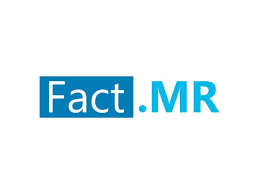Hybrid Inverters Market is Forecasted to Hit USD 15.8 Billion Driven by Solar Integration

The Hybrid Inverters Market is experiencing steady growth, underpinned by rising adoption of solar PV systems and the increasing need for solutions that can seamlessly manage both grid and battery or solar panel inputs. Hybrid inverters combine the functionality of grid-tied inverters with battery charging capabilities and off-grid features, which makes them especially attractive in regions with intermittent power supply or strong incentives for renewable energy.
Government policies aimed at electrification, subsidies for solar installations, and increasingly stringent regulations on emissions further support market expansion. Vendors are focusing on both residential and commercial sectors, with particular opportunity in rural and off-grid applications where grid reliability is a concern.
Full Market Report Available for Delivery. For Purchase or Customization, Please Request Here: https://www.factmr.com/connectus/sample?flag=S&rep_id=1073
Growth Drivers:
Key drivers boosting the hybrid inverters market include government incentives and regulatory frameworks that promote renewable energy installations, especially solar plus storage systems. Advances in battery technology-improved energy density, longer lifetimes, and lower costs-make hybrid inverter systems more cost-competitive and practical. Rising electricity costs and concerns over grid reliability also push consumers and businesses to seek systems that offer backup power and greater energy independence.
Technological innovations are contributing as well, with hybrid inverters evolving to offer better design flexibility, improved efficiency, smart features such as MPPT (maximum power point tracking), monitoring interfaces, and protection mechanisms. As rural electrification initiatives expand in many developing countries, hybrid inverters are increasingly seen as essential components of sustainable energy access.
Regional Insights:
The market shows strong adoption trends in Asia-Pacific, where solar PV deployment is growing rapidly and incentives are favourable. Regions such as India, Southeast Asia, China, and parts of the Middle East and Africa are seeing robust demand for hybrid inverters, particularly in systems that combine solar and battery to manage unreliable grids or provide off-grid power. Developed regions like North America and Europe are also contributing significantly, driven by residential solar plus storage installations, commercial backup systems, and growing interest in micro-grids.
Governments in these regions are pushing clean energy targets, net zero goals, and support schemes for renewable power and energy storage, all of which favour hybrid inverter deployment. The commercial sector, including small businesses and institutions, is adopting hybrid inverters to stabilize power costs and improve resilience.
Recent Developments:
Recent years have brought important innovations in the hybrid inverters market. Manufacturers are introducing devices with enhanced power conversion efficiency, better cooling, compact form factors, and improved user-interfaces. Hybrid inverters are being designed with better power electronics, more advanced MPPT algorithms, integrated monitoring systems, and enhanced durability to withstand harsh environmental conditions.
There is growing integration of hybrid inverters with smart home systems and energy management platforms, allowing users to monitor and optimize energy usage. Battery compatibility has widened, with more hybrid inverters now supporting newer battery chemistries. Also, product offerings are increasing in capacity and scale, enabling both small residential systems and larger commercial or industrial hybrid systems.
Browse Full Report: https://www.factmr.com/report/1073/hybrid-inverters-market
Key Players Insights:
Major players in the hybrid inverters market are investing heavily in R&D to stay ahead on efficiency, reliability, and system integration. Companies like ABB, Schneider Electric, SolarEdge, Growatt, and Delta Energy Systems are among those seen frequently in market reports, distinguishing themselves through product breadth (different capacities and applications), innovations in firmware and hybrid control, strong service or support networks, and ability to deliver solutions tailored to local regulatory and environmental conditions.
These companies are also expanding their presence in emerging markets, often through partnerships or local manufacturing, to reduce costs and improve responsiveness. Competitive differentiation is increasingly based not just on inverter performance but also on warranty terms, system monitoring, ease of installation, and compatibility with battery systems.
- Art
- Causes
- Crafts
- Dance
- Drinks
- Film
- Fitness
- Food
- الألعاب
- Gardening
- Health
- الرئيسية
- Literature
- Music
- Networking
- أخرى
- Party
- Religion
- Shopping
- Sports
- Theater
- Wellness


